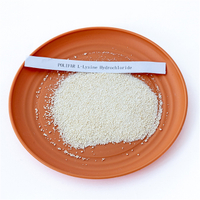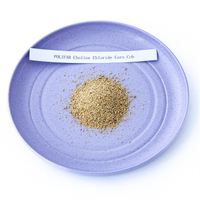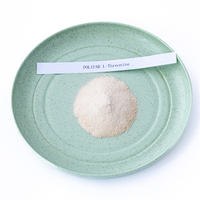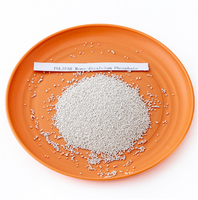Views: 0 Author: Site Editor Publish Time: 2024-09-21 Origin: Site








Fumaric acid is an essential food additive that plays a vital role in enhancing the quality and longevity of many food products. Known for its ability to regulate acidity, boost flavor, and improve texture, fumaric acid is widely used across the food and beverage industry. As a naturally occurring compound, it provides both functionality and safety, making it a popular choice for food manufacturers globally.
Fumaric acid is an organic compound that occurs naturally in various plants, such as lichen and fungi. Chemically, it is a dicarboxylic acid with the formula C₄H₄O₄. It is widely used in the food and beverage industry as a food additive due to its sour taste and acidic properties. In its synthetic form, fumaric acid is commonly used as an acidity regulator, flavor enhance and preser vative.
Its key functions include regulating the pH level in foods, enhancing flavors (especially in fruit-flavored products), and extending the shelf life of processed foods by preventing microbial growth. Additionally, fumaric acid is non-hygroscopic, meaning it does not absorb moisture from the air, making it ideal for dry food products. It is also heat-stable, which allows it to maintain its properties even during high-temperature food processing, such as baking.
Fumaric acid is approved by global food safety authorities and is generally recognized as safe (GRAS) for use in food products.
Fumaric acid serves several important functions in food, making it a versatile and valuable additive in various products. Here are its key functions:
Acidity Regulator: Fumaric acid helps to maintain a stable pH in food products, ensuring the desired acidity level for taste, texture, and preservation. It is especially useful in fruit-flavored beverages and processed foods.
Flavor Enhancer: With its strong sour taste, fumaric acid is often used to enhance and intensify flavors, particularly in fruity and tangy food items. It is commonly found in candies, soft drinks, and sauces.
Preservative:: Fumaric Acid inhibits the growth of molds and bacteria, thereby extending the shelf life of food products. It is frequently used in baked goods, jams, jellies, and processed foods to keep them fresh longer.
Texture Improvement: In baked goods and confectionery, fumaric acid contributes to improving the texture and structure. It strengthens dough and helps to maintain consistency in products like bread, pastries, and candies.
Low Hygroscopicity: Fumaric acid does not easily absorb moisture from the air, making it ideal for dry food products such as powders, baked goods, and candy. This prevents clumping and preserves product quality during storage.
Cost-Effective Acid Source: Due to its highly concentrated acidic nature, smaller quantities of fumaric acid are required compared to other acids, making it a cost-efficient option for manufacturers.
These functions make fumaric acid a highly sought-after ingredient for enhancing food quality, flavor, and shelf life across a variety of products.
Fumaric acid is widely used in various food and beverage products due to its versatility. Here are some common applications:
Beverages: Fumaric acid is commonly added to fruit juices, soft drinks, and powdered beverages to enhance tartness and regulate acidity. It provides a refreshing sour flavor while balancing the pH levels in these drinks.
Baked Goods: In the baking industry, fumaric acid helps improve dough strength, maintains freshness, and extends shelf life. It is often used in bread, cakes, and muffins to ensure consistent texture and to prevent spoilage.
Confectionery: Sour candies, gummies, and jellies rely on fumaric acid for their intense sour flavor. It also improves the texture and consistency of these products, helping them maintain their shape and quality over time.
Processed Foods: Fumaric acid is frequently added to sauces, jams, jellies, and other processed foods to enhance flavor, regulate acidity, and improve shelf life. It helps stabilize these products and maintain their quality.
Dry Mixes and Powders: In dry food products such as seasoning powders, baking mixes, and instant beverages, fumaric acid is used to prevent clumping and moisture absorption due to its low hygroscopic nature.
Dairy Products: In dairy products like cheese and yogurt, Fumaric acid helps balance acidity, improving flavor and texture while also contributing to the product's stability and preservation.
Cured Meats: Fumaric acid can also be used in processed meats to help maintain pH levels and preserve freshness, while contributing to the overall flavor profile of the product.
These wide-ranging applications demonstrate the versatility of fumaric acid in food processing and manufacturing, where it enhances taste, improves texture, and extends shelf life.
Cost-Effective: Due to its concentrated acidity, fumaric acid is more potent than other acids, allowing food manufacturers to use smaller quantities, reducing overall costs.
Heat Stability: Fumaric acid retains its properties even at high temperatures, making it ideal for use in baked and processed foods.
Longer Shelf Life: Its antimicrobial properties prevent the growth of bacteria and mold, keeping food products fresh for extended periods.
Low Hygroscopicity: Unlike other acids, fumaric acid does not readily absorb moisture from the air, making it suitable for use in dry mixes without clumping.
Fumaric acid has been extensively evaluated and is deemed safe for use in food products by major regulatory bodies. It holds GRAS (Generally Recognized As Safe) status from the U.S. Food and Drug Administration (FDA) and is approved by the European Food Safety Authority (EFSA) as well. Global food safety agencies, including Codex Alimentarius, have set guidelines for its acceptable levels of use in different food categories, ensuring that it can be consumed without health risks.
Fumaric acid is a multifunctional food additive that enhances flavor, regulates acidity, and extends the shelf life of a wide range of products. Its unique properties, including cost-effectiveness, heat stability, and antimicrobial benefits, make it an invaluable ingredient in the food industry. As consumer demand for high-quality, long-lasting food products grows, fumaric acid continues to play a pivotal role in the production of safe and flavorful foods. At Polifar, we are committed to providing the highest quality fumaric acid, ensuring that our clients can rely on safe, effective, and innovative solutions for their food production needs.






